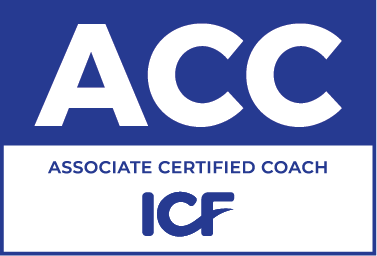You Want To Change Your Career But Where Do You Start?

When you are in a job that you dislike or which doesn’t challenge you any more, your whole life can be affected. You may become demotivated and moody. You feel trapped. Instinctively you feel that there is something better out there for you. But what? You really want to change but you haven’t a clue where to start.
The first step
But once you decide that things need to change, taking the first step can make a big difference. There may be challenges and obstacles along the way. Nevertheless that first step can unleash in you a new energy which will help to give you the clarity and determination to press ahead.
Stay curious
When you are embarking on career change you are your best ally. Be curious about what is on offer. As well as getting some expert advice draw on your own detective skills when you do your research about the sorts of jobs and training that are available. Gather evidence. Talk to witnesses. Follow up leads. If you have a hunch about something pursue it. Don’t worry if you come to a dead end in the road. Trying out something which you discover is actually not right for you is never a wasted moment. You will have learnt a lot about yourself during the process. Importantly, it is a step closer to what you want for your new career.
Mindset matters
We can be our own worst enemy when we are trying to make a career change. Sometimes fear of the unknown can cause us to freeze up. Often we overthink things with too many what if’s thrown into the mix. What if I fail? What if it doesn’t work? What if I hate the job? Added to that we procrastinate. For example, insisting that we read just one more book on the subject before we can even contemplate taking the smallest action. Whilst there is nothing like good preparation, there is a danger that we fall into what has been described as ‘analysis paralysis’. At that point it may simply feel easier to give up. But thinking big and harnessing all the dreams and ideas you may have, crazy or illogical they may sound at the start, can help you break out of your inertia. There will be time to explore and even reject such ideas if necessary later.
Talk to people at the sharp end
You can get a lot of advice and support from the experts such as those in the National Careers Service, Careers Wales, sector bodies and career coaches. These organisations and individuals can help you find out about qualifications, training and career paths. But there is nothing quite like talking to people at the sharp end who are doing the jobs that may interest you. You get a feel for this far better than just reading about them. Conversations with the relevant people can help you find out what they really love about their work and their working environment. If you are stuck, start off with the people you may know already and then move on. It is surprising how often one conversation can lead to another resulting in a network of people who can help to enthuse and give practical advice. LinkedIn is extremely valuable in helping you to build relationships with individuals and companies in the line of work that you are researching. So don’t be afraid to reach out.
Look after your wellbeing
Thinking about, planning and ultimately changing your career can often take time. It can put a lot of pressure on you. When you are constantly pondering about the future and what to do next, this can deplete your energy reserves making you feel irritable and fed up. And that is not a good look when you are applying for a new job. So take a break! Treat your job search as if you would your job. Allocate a certain time of the day to do job search activities. Don’t spend all your time at this task when you are tired. Mix this up with periods when you can relax and rest. Set yourself measurable goals. Despite the enormity of the task, being organised can help you stay calm and present your best self to potential employers.
Dip your toe in the water
When you are making a career shift, the leap required can feel enormous. In addition, the sense that change should be all or nothing can be quite off-putting. In reality, career change can be done in an incremental way. While you are in your existing job you can experiment. Just dip your toe in the water and be prepared to try a few other things without wading in too deeply. Before I became a full time politician, I spent many years volunteering and campaigning in politics because that was my passion. For some of that period I was also an elected member of a local council whilst at the same time working full time in education. That combination certainly paid off in the long term. The invaluable skills and contacts I had made really supported me when I became one of the first intake of politicians in the Senedd/Welsh Parliament. Similarly, whilst in your current employment, look out for opportunities to make contact with the people in the jobs that interest you. Being mentored, doing some periods of work shadowing or work experience can all help to get you noticed but also give you an insight into the job that you ultimately want.
Get moving
Be aware of what Cyriel Kortleven describes in his book The Change Mindset as ‘Idea Killers’, those overly cautious thoughts you may have which stop you from making your career change. Those voices will be strong and it may just feel easier to stay put. But think about what that will cost you in the end if you remain stuck in an unfulfilling role. Career change can feel overwhelming but taking that first step can indeed be liberating.
[Image: Jacob Dyer]
You used to love your job but now it's all gone wrong!

Have you got to the stage in your career where you hate getting up in the morning? You dread the long day ahead. Your stomach sinks when you think of that work colleague who, with one sarcastic comment, can manage to cast a gloom over the rest of your day. You feel undervalued and you just don’t care. The job you loved is not doing it for you anymore. How did it all get to this? Where did it all go wrong?
When your job is going well, the world is a different place. However hard the challenges, however long the hours you put in, you feel energised and alive, ready to take on the day. You feel good because you know that what you do matters, that you are appreciated and respected. Furthermore, you work with a team of people who have got your back however tough things get.
But what if this isn’t happening?
Take back control
It is well established that stress levels increase when the control you have over your own workload decreases. Perhaps your line manager keeps piling on the work unthinkingly or even with good intentions in the belief that you can cope? Under these circumstances it is no wonder that you start to feel panicky and unfocussed. As much as you want it to, the problem won’t miraculously disappear. So don’t sit in silence.You need to start taking back control. You need to start articulating your needs and communicate to your boss about what’s bothering you.
When colleagues are the problem
But what if your workplace colleagues are not playing fair? You may like your job but there are one or two co-workers who, through design or thoughtlessness, continue to make your working day a nightmare. Constant undermining, exclusion and downright bullying can be a toxic mix in any workplace. This is not only hard on the individual affected but can affect the dynamics within the whole team. If difficult co-workers are the problem create some space to think about what is really happening here. Why is that person acting in that way? Plan to deal with this calmly and importantly constructively. This will take determination. However, it is likely that other colleagues will have suffered from the same bad behaviour. They may not be as courageous as you but will certainly thank you for speaking up.
But what if it is you who is the problem?
Have you ever thought that maybe it is you who’s scuppering the smooth operation of your workplace? An uncomfortable notion perhaps. From time to time we can all get completely wrapped up in our own sense of importance, busy-ness and drive that we simply forget the effect that that has on the rest of the team. If you start to feel that there are tensions in the workplace, if you feel that you can sometimes cut the atmosphere with a knife then find the courage to have an honest, open discussion with colleagues about what is bothering them. As toe-curling as it may be, pluck up the courage to ask them, or even just a trusted colleague to suggest what aspects of your own behaviour may be triggering a stressful atmosphere in your workplace. Then resolve to approach this situation with a fresh pair of eyes.
Work/life boundaries
Work is often all encompassing however fulfilling and exhilarating it can be. And in that situation you may find it very difficult to switch off even when you are enjoying some down time with family. The culture of overwork is widespread. As Madeleine Bunting warned in her excellent book Willing Slaves some years ago, there is a ‘sheer invasive dominance of work in people’s lives’, the high cost of which has an impact on ‘their health and happiness’.
For example, technology means that we are contactable at home at all times. Convenient in one way but this also blurs the boundaries between personal and working life. And even though many of us are now working from home because of the pandemic, with the trend likely to continue, the challenges may still remain. It is all so easy to compulsively check emails for example at all times of the day and night. Whilst more and more companies are putting in place strategies to encourage a better work/life balance this is still far from universal. It is likely that our working lives will be longer than ever and we are in this for the long haul. Therefore, for the sake of our health and wellbeing it does make sense to address this issue sooner rather than later.
Stay or leave? But do it on your terms
Despite your best efforts, you may have come to the conclusion that your present job is simply not working for you any more. However much you rearrange the deckchairs you really are part of a sinking ship. If your heart tells you that it is time to go then make the decision to do so. Give yourself a deadline and start to work on your exit strategy. Making such a big commitment to leave your job or in fact taking action to make a stand within your job can be a daunting experience. But imagine the cost to your wellbeing of not doing so. Resolve to take ownership of your future. Delay no longer and take action.
[Image: Brock Wegner]
Career Change during Covid

Changing your career is never straightforward and it is particularly challenging now that we are in the middle of a pandemic. Should you even contemplate such a move at this time? Your head may tell you to be cautious. After all, within the UK many employees and businesses are facing enormous uncertainty and disruption as a result of Covid 19. In particular, the ‘Covid Generation’ of young people are facing a jobs’ crisis like never before. So the time may not be right to make the change. But what if your heart tells you otherwise? What if the pandemic, which has turned our world upside down, is making you think again? What should you do?
Don’t give up your ambition
While things may feel bleak at the moment, it’s important to hold on tight to your ambition if you want to make that career change. As Mark Twain said : ‘Twenty years from now you will be more disappointed by the things you didn’t do than by the ones you did. So throw off the bowlines. Sail away from the safe harbour. Catch the trade winds in your sails.’ So even though you may feel despondent at times, make a space for yourself in order to create a compelling vision of your future job. Visualise what that job would look and feel like. Note what skills are required but also include aspects such as the environment and work culture relating to it. Covid is making many of us feel very disempowered at the moment but now may be the time to start taking control again.
Build resilience while you make the change
Thinking and planning for a career change can be unsettling. But this can be overcome by drawing on your resilience and bolstering your wellbeing. According to Wellbeing, Resilience and Engagement Practitioner , Caroline Arora, resilience can be built by using 4 tools :
1. Remind yourself why you are making a career change and connect with its deeper meaning. For example, you may want to take up a career where you can feel more fulfilled and where you can make a difference.[Meaning tool]
2. Work out a plan for your change and map it out in as much detail as possible. It might change from time to time, particularly if you have a setback but the important thing then is to regroup and move forward. [Plan tool]
3. Connect with others and get support from them, including those who have made a similar career change. Their help can be invaluable in keeping you on target. [Engagement tool]
4. Finally, don’t forget to take stock of your achievements every so often. Even though the goal may be some way off, it is important to remember that you are making progress and you should acknowledge yourself for that.[Celebrate tool]
Maintain your wellbeing
Whilst planning and working towards a career change can also be energising, it can sometimes feel hopeless and debilitating. Not every day will you wake up on top form ready to make some brave decisions. So maintaining your wellbeing, both mental and physical, is essential. Treat this as seriously and plan for it as you would in other parts of your life. In terms of your wellbeing ensure you get what you need, whether that is enough sleep, time with the family or exercise. Taking a short break from the things you find stressful will help to keep you strong and on track and maintain a balanced perspective.
Put numbers to it
One of the biggest barriers to career change is finance. Understandably, you may feel that the prospect of abandoning a well paid and secure job for something new and unexplored is just too daunting a prospect. But as Simonne Gnessen founder of Wise Monkey Financial Coaching points out, there are practical strategies which can be adopted to make you feel calmer about the situation. Once you have decided on your career plan ‘put numbers to it’. Make an accurate assessment of what this career move will cost you. Work out the financial implications of retraining and a drop in salary for example and compare that with your current financial situation, including any assets, debt or savings you may have. Once you know what sum of money is needed you can then start to think creatively of how you achieve it. Gnessen for example offers some ideas such as remortgaging, renting out a room in your home and exploring government grants. Also, whilst working and earning in your present job you can start taking relevant part-time courses and building up your knowledge of the new career before you leave.
Take ownership
Career paths are much more complex than they were when I was a schools’ careers advisor many years ago. The idea of a job for life has fast disappeared. People enter and re-enter jobs frequently, moving upwards and often sideways for promotion and development. As Helen Tupper and Sarah Ellis illustrate in describing their own experiences of working life in their book The Squiggly Career, traditional career paths are not ‘linear anymore …the career ladder was gone and in its place was the squiggly career.’ As they discovered, being proactive and taking ownership of your career, can help to plot a way through. And taking ownership means firstly knowing what your strengths and personal values are so you can make the most of them in any future career. Recognising these can help to grow self confidence and self belief, something which can be motivating and can support you in your career journey. But sometimes this can also involve moving from familiar to unfamiliar territory. If that happens, it is really useful to reach out to others and find a good network of people who can help you. As a Member of the Welsh Parliament for many years I was fortunate to have had the support of many excellent people and systems which enabled me to carry out my role effectively. However, when I chose to stand down from politics and set up my business, I felt very isolated for a while. But joining a number of business networks brought me into contact with some fantastic individuals. They were able to share their expertise and experience and were invaluable in helping me to make my big career change.
If you would like my support in helping you make your career change then please email me on chris@christinechapmancareercoach.co.uk or call 07595 225291
Sometimes We Are Our Own Worst Enemy

Have you been having strange dreams lately? Since Covid 19 struck it appears that the stress of lockdown and the fact that our sleep patterns have been disrupted has led to many people reporting bizarre dreams and nightmares. But some experts have argued that even when we are awake the pandemic is causing us to be anxious and fragile as a result of feeling that we are losing control over our lives and our futures. Such heightened emotional reactions are fertile grounds for negative thoughts.
For some of us negative thoughts are present regardless of the pandemic. For example, how often do past forgotten experiences suddenly pop into our head for no apparent reason?
How often do we let our day to day lives be affected by those thoughts?
How often does self confidence plummet when suddenly we remember a remark made by someone from our past?
Why do we let our thoughts and imagination act to sabotage any good intentions? Sometimes we are our own worst enemy.
Marion
Let me share an example from my own experience. My PhD thesis which I completed some years back, was an oral history study of women who were born in the Rhondda, south Wales, my place of birth. I interviewed the women, who were then in their late seventies and eighties about their lives as young women, coming of age in the middle of the twentieth century. One aspect of my study focussed on their education. One of the women Marion, described how teachers dismissed her as ‘not very bright’, a label she found difficult to ignore even in adulthood. Marion was particularly wounded by what one teacher had written about her:
Everyone had an autograph book and you took it to school for the teacher and I can always remember what she wrote in mine. Sometimes I think she did influence me. “Be good sweet maid and let those who will be clever do things, not dream them all the day”.
The use of autograph books was a common feature in schools up until the 1950s. The phrase came from a Charles Kingsley poem, a guide to life, commonly written in children’s autograph books at the time. But what Marion recalled was actually incorrect. The correct quote from the poem was: ‘Be good, sweet maid, and let who will be clever, do noble things, not dream them, all day long.’ Marion had mistakenly understood the phrase to include the word those. Although this had not altered the meaning to any great degree, all her adult life, Marion had thought of herself as not being included in ‘those who will be clever’. Such an interpretation affected her self-esteem and confidence.
Limiting beliefs
As a career coach I often work with people who really doubt themselves. Some people suffer this to such an extent that it makes them unhappy and anxious. Whilst the outside world may see that person as capable and talented they can’t see it themselves. Often they attribute any success they achieve to mere luck or good fortune. Such habits of putting yourself down can often sabotage good intentions.
We describe this behaviour as ‘limiting beliefs’, something which Kim Morgan in her book The Coach’s Survival Guide describes as ‘assumptions’ which ‘hold us back from achieving what we want’. In addition, limiting beliefs often limit our self-esteem too. It is common for this to start in childhood. If, for example, you were told often enough that you were lazy or that you didn’t have a natural aptitude for say maths or languages then you may start to believe this. And like Marion you will absorb this opinion about yourself which can last a lifetime.
A new approach
Does this matter? Certainly it does because constant self doubt can be debilitating and can stop you leading the life you want to lead or enjoy the career that gives you real fulfilment. But this doesn’t have to be the case. A fresh approach and perspective can help you to start to chip away at the old beliefs which are not serving you well by undermining you at every stage. And by working to replace these with a new narrative and outlook new possibilities will start to emerge.
If you need help to become more confident in your working life then please contact me : 07595 225291 or chris@christinechapmancareercoach.co.uk
When Small Businesses get into a Rut

Are you a small business owner who has lost your enthusiasm? It can happen. You wanted to get off the treadmill of working for someone else and now you are on one of your own making.
As a career coach I often work with people who run their own businesses. One of the main reasons they chose this path was because they aspired to becoming their own boss, embracing the independence that would entail. Many have previous experience of working for larger companies but for various reasons they had decided to go it alone. Of course there are benefits to being part of a bigger business and working for yourself can feel very stressful at times. But occasionally other emotions come into play. As a small business taking your first tentative steps into the freelance world, you may expect hard work, some sleepless nights but certainly not boredom and unfulfillment. And what does that look like? Times when you don’t always like the clients you work with. When you don’t always agree with the demands they put on you or even the products and projects they want help with. When this happens the effects on you as a business owner can be immense, both economically and personally. At best you feel resentful. At worst you feel trapped and in a rut.
Connect to your values and passions
Whether we run our own business or work for someone else it is important for our wellbeing to keep connected to the values and passions which make life meaningful and interesting. But it is easy to overlook those things when we get engrossed in the mechanics of day to day life. Yet once we manage to make that connection a big change occurs in how we approach our working lives. Being a politician in the Welsh Parliament for many years meant that I was called upon to campaign for many things. It was easy to feel quite overwhelmed at times. But my light bulb moment came when I decided that, as the saying goes, ‘I couldn’t be all things to all people’. And that meant that in order to maintain my sense of wellbeing and reserves of energy, I had to choose between what I would focus on and what I would quietly abandon. Issues such as education, women’s empowerment and supporting small businesses for example were highly important to me and subsequently then they were the ones that I would throw all my energy into.
Carol Adrienne in her book Find Your Purpose, Change Your Life, talks about the impact on us as individuals when we make a direct link to something we value. This realisation can open up new streams of energy. The way we approach our work and life in general can start to feel ‘effortless’, ‘fun’ even and ‘everything flows’. As a result we become more ‘resourceful’, we find the confidence to ‘handle anything’ and we develop ‘courage’.
Making more meaningful connections
But how does this philosophy apply in the world of work? As a small business owner, have you noticed how you really love to work with certain clients? Despite whatever challenges they present, you want them to succeed because you really care about what they do or because they as individuals inspire you. So deep is your connection to them that you are prepared to go the extra mile for them, a reciprocal effect in that it brings out the best in you.
Wouldn’t it be great if these sorts of clients and situations were not the exception but the rule? Of course arguably on the one hand COVID 19 has meant that many businesses are struggling financially. Many businesses may feel that they have less choice now in how they approach work and the sorts of clients and projects with which they connect. But COVID 19 is also making us more reflective in terms of not wanting simply to go back to normal but to do things differently in the future. One business I know has decided to make more long lasting change in his company. He is using the downtime to develop projects related to the environment, something which has been a strong interest for him for many years but until now did nothing about. Another, witnessing the impact the pandemic is having on the employment prospects of younger people, has decided to volunteer to become a mentor.
Getting off the treadmill
So how do you regain the enthusiasm that you experienced when you first started your business? One way is to take some time out to think more deeply about the projects and clients that really matter to you. Once you have this clarity then you can get off the treadmill and start to take your first steps on a new creative path.
If you would like my help in planning a new approach in your business then call me on 07595225291 or email me on chris@christinechapmancareercoach.co.uk
Five Ways to Lead

Recently I was invited to a small company in south Wales which I have known for many years. The business was being presented with a Queen’s Award for Enterprise [Innovation], not just for the first but for the second time. Despite operating in a difficult market the company has managed to embrace some cutting-edge technology and subsequently is enjoying a degree of success. What struck me on that day of celebration was how impressive the MD was in choosing to pay tribute to every single member of the company. His speech, on receiving the award, showed how highly he valued each employee, attributing the innovation of his company to their collective contribution. In a very self- deprecating way, he deliberately turned the spotlight away from his own personal accomplishments and onto his staff. It was a key moment of strong leadership. Yet it was a style with which we are not always familiar and even comfortable given that the traditional view of a leader is one who is bold, has the monopoly on knowledge and leads from the front. But in contrast, whatever approach this MD was adopting, it was clearly working given his company’s success. That got me thinking about what it takes to be a leader in today’s complex world.
Stepping up to the plate
In the workplace or in our social and family lives, we are often required to step up to the plate and take on a leadership role, whether we like it or not. We may have to make a tough decision, break a deadlock or deal with a crisis and these things can be tricky. Often we see taking on this role as problematic. It is someone else’s responsibility and often you hear the phrase ‘he or she is a born leader….but that’s not me’ and we are too quick to rule ourselves out of the frame. But equally at times of crisis or trauma, leadership comes from the most unexpected quarters. Who would have thought, for example, that one lone but determined schoolgirl, Greta Thunberg, could inspire and lead a movement to tackle one of the most pressing problems of our age? In our daily lives we come across many different leaders, each leading in different ways, often adapting their approaches to the circumstances which arise. Indeed, Karen and Henry Kimsey–House, founders of the Co-Active Training Institute, define Leadership very simply and straightforwardly : It is about being responsible for your own world. Their model defines leadership in 5 ways:
Leader in Front
This is the most easily recognisable model and is perhaps the most traditional. The Leader in Front has a clear sense of purpose and direction but brings people with her and values their input.
Leader Within
If you think about living with integrity and living your life whilst adhering to your personal values, then you are the Leader Within. You strive to be the best version of yourself and become a role model to others in your workplace or community. Mahatma Ghandi’s instruction to ‘be the change that you wish to see in the world ’ sums this up perfectly.
Leader Behind
There is always someone you would describe as the backbone of any workplace or organisation. Often this person’s aim is not to try to look good or get ahead. This is the Leader Behind and she/he focuses on providing whatever is needed to make the team a success. This type of leader is committed to empowering and calling forth the talents of others by believing in them.
Leader Beside
The Leader Beside model is about two people working together, both bringing their own strengths and skills to the table but importantly sharing a commitment that drives the workplace or organisation forward. This dynamic partnership can accommodate different views, disagreements and responsibilities but the shared vision is what holds it all together successfully.
Leader in the Field
And finally the type of person who always looks beyond the immediate situation and identifies the big picture is the Leader in the Field. He or she may not necessarily be involved in the nuts and bolts of an organisation but is an essential element in noticing and taking responsibility for the wider impact.
An Authentic leader?
As a career coach I sometimes work with people who are called upon to become leaders in their organisations. Often they feel they haven’t the confidence to do so or even unwittingly may adopt an approach which is alien to them. But leadership is multidimensional and everyone has the capacity to lead. Just as we are all unique human beings, we can also embrace the leadership model which is more authentic to us and in turn can be an inspiration to others.
If you would like my support in developing your leadership skills, then please call me on 07595 225291 or send me an email : chris@christinechapmancareercoach.co.uk
Career lessons from the world of politics

Some time ago I attended an ‘in conversation’ event where Julia Gillard, former Prime Minister of Australia, talked about her experiences of politics. Her story was an inspiring one.
Gillard had moved from south Wales to Australia with her parents and sister at the age of 4 where she eventually became not only its 27th Prime Minister but its first female one. Her 3 year period of office was both extraordinary and turbulent. Yet in the face of an often hostile media and challenges from political opponents she remained steadfast to her ideals and sense of purpose in leading her country.
Don’t sacrifice your self esteem for a couple of bad headlines
When asked how she had managed to keep going despite the pressure, her advice was simple: Don’t sacrifice your self esteem ‘for a couple of bad headlines.’
Julia Gillard had come to this conclusion by observing the behaviour of others around her. She noticed how more senior colleagues would be confident and self assured one day but would transform into shadows of themselves when confronted by a negative press the next. Her take away from that was that you’re fundamentally the same person whatever happens. As she describes in her autobiography My Story she became practised in not viewing herself ‘through the eyes of others’ and ensuring her self esteem was not ‘hostage to the outcomes of battles or perceptions of popularity.’
Why resilience matters
What a great piece of advice! In our working and social lives we are always going to be at the mercy of bad days and difficult people and situations. That is a given. If we allow our confidence and sense of worth to be dictated by the whims of others then we won’t flourish.
In Gillard’s case it was her resilience which made all the difference. That is a sentiment with which I can certainly identify as a former politician in the Welsh Assembly. Political life comes with the privilege of prestige and influence but it is often like living in a gold fish bowl and you have to keep pretty grounded to get through it all.
As a Career Coach I sometimes work with people who may be struggling to deal with difficult work colleagues who constantly put them down or even with challenging situations which undermine them. Such scenarios can make them question their own sense of self worth. But a clear sense of purpose and an understanding of your values can go a long way in helping to deal with this effectively. Both of these can help develop your resilience, a protective mechanism which can sustain you when things get tough. Julia Gillard characterised her resilience as a muscle: the more you use it the better you become. Perfect sense surely ? So when those bad headlines come your way you can shrug your shoulders knowing you have all the tools to cope.
If you would like support in developing your resilience, please call me on 07595 225291 or send me an email: chris@christinechapmancareercoach.co.uk.
Total Immersion

Whatever your passion is, go for total immersion. That’s the message in Philippa Davies’ inspiring book Eureka! Making Brilliant Ideas Happen. Philippa argues that to succeed in whatever you really want in life you need to dive deep into your subject and commit wholeheartedly to it. You may have a passion to write a novel, speak a new language, learn to tango or make your community a better place to live but often this just remains wishful thinking because of the realities of daily life.
The pitfalls of multitasking
Those mundane tasks often dilute our dreams and we take on too many things at once. We could try multitasking but multitasking only works up to a point. Furthermore, this is borne out by a number of research studies which suggest that being more focussed on one task improves performance. We fool ourselves when we try to do it all. Feeding the baby, with one eye on the TV while trying to get that report for work finished can be both frustrating and demoralising.
I discovered this myself a few years ago. Before I became a career coach, my life’s ambition was to achieve a PhD. I was a part time student with a very demanding job which had to be my number one priority. In terms of the PhD, much as I wanted the accolade, I wasn’t really doing much about it and kept getting distracted. Months would go by and little progress was being made. Very few words were written and I was behind with my reading. It was only when I put aside some quality time and immersed myself in the project did I finally succeed. What worked for me was allocating a few hours in the morning every day before my main job started and a few hours every evening after it finished. Of course luxuries like TV and some other things had to go but it was worth it in the end!
Dedicated time slots
I suppose in my own way I was joining the ranks of the 5 to 9ers, a hardy group of people about whom Emma Jones has written in her book Working Five-to-Nine. How to start a successful business in your spare time. Many budding entrepreneurs use this approach as a way of immersing themselves in their fledgling businesses whilst holding down a day job. But it can equally apply in other non-work areas :
For example, before he became a full-time novelist, John Grisham used the early mornings to immerse himself in his writing before he started work at his law practice. Comedian Steve Martin developed his skills and passion for the banjo by practising for many hours in his car, with the windows rolled up, until he mastered the instrument!
If you want a life which is well lived and fulfilled surely it is important to do what you love. Once you discover that precious thing that makes your eyes gleam then go for it. Don’t hesitate but dive right in!
Contact Christine Chapman Career Coaching
Please follow this link to my Contact page. Alternatively, give me a call on 07595 225291 or email: chris@christinechapmancareercoach.co.uk
Five Ways to Overcome Disappointment

All of us suffer disappointment in our lives. We may not get the job we applied for, we lose the house sale, or we fail an exam. When this happens it is easy to slip into negative thoughts, bitterness and anger even. Here are five steps to help overcome this:
1. Learn from the experience.
Once the dust has settled, start learning from the experience. Focus on other situations where you had triumphed and succeeded. Reflect on what methods you had used then to overcome adversity – a career coaching client had been turned down for her chosen job time after time. However, she remembered her charity walk climbing a mountain. The memory of this experience motivated her because she recalled how her final success was ultimately down to her persistence. This technique made her feel much more powerful and she eventually got the job she wanted.
2. Be kind to yourself.
We are often harder on ourselves than we would ever be with others. When the disappointment is at its most raw and painful don’t even try to think rationally about it – leave that for another day. Instead, try to live in the moment, use mindfulness techniques and enjoy the simple pleasures associated with things such as family and nature perhaps.
3. Be inspired.
Move on and look ahead with hope by drawing on the experiences of some inspirational people as a guide. That was Hillary Clinton’s approach when she lost the 2016 presidential election. In her excellent book, What Happened
she details a number of figures who inspired her. One was the remarkable woman abolitionist Harriet Tubman who as Clinton describes, ‘Never lost her faith in a simple but powerful motto: Keep Going.’
4. Failure makes you stronger.
Remember that history is full of people who had self doubt but came back stronger after failure, a very powerful theme that I, as a career coach often draw upon. The wonderfully inspiring Maya Angelou, despite having written eleven books at the time, appeared to have suffered from Imposter Syndrome, a condition where you tend to doubt your own abilities. JK Rowling experienced periods of depression and poverty before her writing finally took off. Charles Darwin failed not once but twice in medicine and theology before he wrote his ground breaking text, On the Origin of Species.
5. Take the long view.
Maintain perspective. In a few years time you will realise that this particular experience, difficult and challenging as it is now, will be in the past. It will have contributed to the stronger and more resilient person that you are becoming.
Contact Christine Chapman Career Coaching
Please follow this link to my Contact page. Alternatively, give me a call on 07595 225291 or email: chris@christinechapmancareercoach.co.uk




